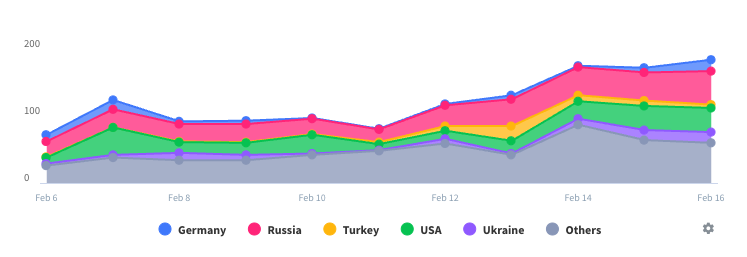
Bhagavad Gita in hindi
Published by: tenzin thinley
Description
The "Shreemad Bhagavad Gita," often referred to simply as the "Bhagavad Gita" or the "Gita," is a 700-verse Hindu scripture that is part of the Indian epic Mahabharata. It is written in the form of a dialogue between Prince Arjuna and Lord Krishna, who serves as his charioteer.
The setting of the Bhagavad Gita is the battlefield of Kurukshetra, just before the start of a great war between two factions of the same family, the Pandavas and the Kauravas. Arjuna, one of the Pandava princes, is overwhelmed with moral dilemmas and refuses to fight. He turns to his charioteer, Lord Krishna, for guidance. In response, Krishna imparts spiritual wisdom and philosophical teachings to Arjuna, addressing his doubts and concerns.
The Bhagavad Gita covers a wide range of topics, including duty (dharma), righteousness, the nature of the self (atman), the purpose of life, the path to liberation (moksha), and the concept of yoga. It emphasizes the importance of performing one's duty selflessly, surrendering to the divine will, and seeking spiritual realization through devotion, knowledge, and disciplined action.
The Bhagavad Gita is highly revered in Hinduism and has been studied and commented upon by countless scholars and spiritual leaders throughout history. It is considered one of the most important philosophical and spiritual texts in Indian literature, offering timeless wisdom and guidance for navigating the complexities of life and attaining spiritual fulfillment.
Hide
Show More...
The setting of the Bhagavad Gita is the battlefield of Kurukshetra, just before the start of a great war between two factions of the same family, the Pandavas and the Kauravas. Arjuna, one of the Pandava princes, is overwhelmed with moral dilemmas and refuses to fight. He turns to his charioteer, Lord Krishna, for guidance. In response, Krishna imparts spiritual wisdom and philosophical teachings to Arjuna, addressing his doubts and concerns.
The Bhagavad Gita covers a wide range of topics, including duty (dharma), righteousness, the nature of the self (atman), the purpose of life, the path to liberation (moksha), and the concept of yoga. It emphasizes the importance of performing one's duty selflessly, surrendering to the divine will, and seeking spiritual realization through devotion, knowledge, and disciplined action.
The Bhagavad Gita is highly revered in Hinduism and has been studied and commented upon by countless scholars and spiritual leaders throughout history. It is considered one of the most important philosophical and spiritual texts in Indian literature, offering timeless wisdom and guidance for navigating the complexities of life and attaining spiritual fulfillment.
Screenshots
Bhagavad Gita in hindi FAQ
-
Is Bhagavad Gita in hindi free?
Yes, Bhagavad Gita in hindi is completely free and it doesn't have any in-app purchases or subscriptions.
-
Is Bhagavad Gita in hindi legit?
Not enough reviews to make a reliable assessment. The app needs more user feedback.
Thanks for the vote -
How much does Bhagavad Gita in hindi cost?
Bhagavad Gita in hindi is free.
-
What is Bhagavad Gita in hindi revenue?
To get estimated revenue of Bhagavad Gita in hindi app and other AppStore insights you can sign up to AppTail Mobile Analytics Platform.

User Rating
5 out of 5
1 ratings in India
5 star
1
4 star
0
3 star
0
2 star
0
1 star
0

Ratings History
Bhagavad Gita in hindi Reviews
App doesn't have any reviews yet
Store Rankings

Ranking History

Category Rankings
App is not ranked yet
Bhagavad Gita in hindi Installs
Last 30 daysBhagavad Gita in hindi Revenue
Last 30 daysBhagavad Gita in hindi Revenue and Downloads
Gain valuable insights into Bhagavad Gita in hindi performance with our analytics.
Sign up now to access downloads, revenue, and more.
Sign up now to access downloads, revenue, and more.
App Info
- Category
- Education
- Publisher
- tenzin thinley
- Languages
- English
- Recent release
- 1.0 (8 months ago )
- Released on
- Mar 27, 2024 (8 months ago )
- Also available in
- India, Pakistan, South Korea, Kuwait, Kazakhstan, Lebanon, Malta, Mexico, Malaysia, Nigeria, Netherlands, Norway, Nepal, New Zealand, Peru, Philippines, Italy, Poland, Portugal, Romania, Russia, Saudi Arabia, Sweden, Singapore, Slovakia, Thailand, Türkiye, Taiwan, Ukraine, United States, Vietnam, South Africa, Dominican Republic, Argentina, Austria, Australia, Azerbaijan, Belgium, Brazil, Belarus, Canada, Switzerland, Chile, China, Colombia, Czechia, Germany, Denmark, Japan, Algeria, Ecuador, Egypt, Spain, Finland, France, United Kingdom, Greece, Hong Kong SAR China, Hungary, Indonesia, Ireland, Israel, United Arab Emirates
- Last Updated
- 2 days ago





